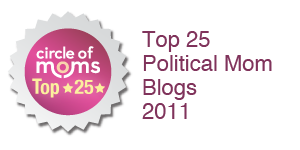Christmas trees are popping up around the Capitol, in front of the White House, and in the foyer of every K Street lobby shop. While snowmen and Santa are everywhere, the talk is anything but festive and joyful - for the moment, the term on everyone’s lips is “shared sacrifice”. As in, budget cuts will touch one and all. Taxes may go up from one end of the income scale to another. It’s time to pull together and put the common good before personal interest. The problem is, the measures being discussed to close the budget gap won’t affect men and women to the same extent, or in the same way. Frankly, women may end up sacrificing more, possibly much, much more.
Remember that women do more family carework than men do, both for their children and for spouses or elderly relatives or ill family members. Consequently, they spend less time in the paid labor force than men. When they do work for money, they make less of it, have smaller savings, and are far less likely to have the benefit of a pension or retirement savings plan. We also live longer, which means that entitlement benefits, like Social Security and Medicare, make up a far larger share of our support than they do for elderly men. Of course, because of all that carework, even those entitlement benefits are much lower. That’s why older women’s poverty rate is so much higher than men’s - all that unpaid family caregiving means women over 65 are twice as likely to be living on $11,000 or less than men at the same age.
Journalist Helaine Olen writing in The Atlantic warns that the effects of raising the retirement age for Social Security and Medicare, adopting a smaller inflation measure, and cutting benefits under Medicaid are anything but gender-neutral. As an example, consider what would happen if a woman’s social security benefit didn’t go up with inflation, but was increased by a much smaller factor.
According to numbers worked out by the National Women’s Law Center, a single elderly woman currently receives a median annual Social Security benefit of $13,200. That translates to $1,100 a month. Under chained CPI, this woman would lose $56 a month by age 80, $87 a month at 90 and $101 a month at 95—that last number is a more than ten percent reduction in benefits. ”That may not sound like a lot to someone who has a lot of money, but that represents a week’s worth of food to someone who lives on Social Security at age 80. If she lives to 95 it is two weeks worth of food,” Entmacher said.
Of course, that benefit must cover other expenses besides food, not the least of which is medical care. If Medicaid and Medicare are cut in the name of fiscal responsibility, out of pocket expenses will rise, and care currently available will no longer be obtainable.
A Medicaid cut has the potential to kick women in any number of ways. For the elderly, of course, it means a lack of services, or services they will have to pay for out of their now-diminished Social Security checks. More than two-thirds of those over the age of 65 receiving Medicaid are female, many using it to pay for home health care workers or nursing homes.
If home health aides stop coming, elderly women will either have to do without, or depend upon family members for care. It’s no surprise that most family caregivers tending to elder relatives are middle-aged women - the same ones who are already suffering from the motherhood penalty on income, savings, and retirement pensions. They will have to pick up the eldercare slack, or pay more to nursing homes who are making up the difference from lower government reimbursements. As if that weren’t enough, remember too that the vast majority of the direct care workforce, the ones who provide the daily care to keep a senior at home, aging in place, is female, earning on average of $20,000 per year. In order to offset the shortfall in Medicare and Medicaid, they may lose hours or work for less money, making them in their old age just as poor, as vulnerable, and just as threatened as older women now.
So for women, the future looks particularly bleak. Cutting public spending by reducing entitlements, ostensibly to decrease the debt on future generations, means more women will be poor, do without, and end up relying even more on their daughters or other (probably female) relatives. This will follow a lifetime in which years were devoted to the care and nurturing of loved ones. Surely other solutions that don’t reduce already inadequate income supports for women, like modestly increasing taxes on those well-off, would do less harm and cause less personal suffering.
“Til next time,
Your (Wo)Man in Washington




Follow Us!